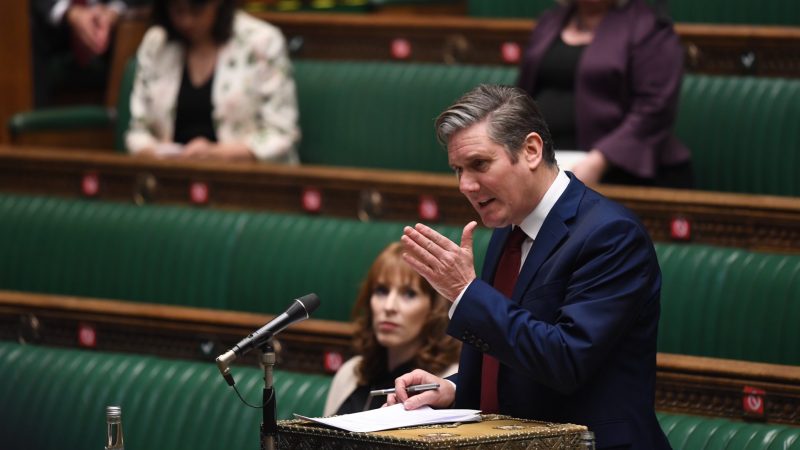
Is there a contradiction between a leadership candidate whose number one election pledge was “increase income tax for the top 5% of earners, reverse the Tories’ cuts in corporation tax and clamp down on tax avoidance” and a leader who is now saying “now is not the time for tax rises”?
The economy has taken a huge hit because of the pandemic with GDP falling by nearly 10% last year – the biggest hit for over 300 years. According to the official figures, there are now 2.74 million people on unemployment-related benefits, and an estimated further four million workers are currently furloughed.
The focus of Rishi Sunak’s Budget on March 3rd should be massive investment to stimulate job creation and get people in work or in training. As the UK emerges from lockdown, it is important that there is demand in the economy (i.e. people have money in their pockets) and confidence of that among businesses.
It is that context that has led the Labour frontbench to alight on the slogan “now is not the time for tax rises”. Labour is rightly opposing the 5% hike in council tax because it is a regressive tax that disproportionately hits lower income households (even more so since the coalition government abolished council tax benefit, leaving a patchwork of inferior local schemes).
However, while it is obvious that rises in council tax, VAT or the basic rate of income tax or National Insurance do take demand out of the economy, that is not the case with other tax rises such as capital gains tax, or increasing tax on the very highest earners (who tend to save rather than spend their excess income).
Tax Justice UK is rightly arguing that the time is ripe for a hike in capital gains tax. This would help rebalance the economy away from the perversions of the housing market in London and the South East, where most capital gains are accrued.
What really threatens to stifle any recovery in people’s finances is low wages and freezes on pay and benefits, so Labour has been right to argue against the public sector pay cap, for a minimum £10 an hour for care workers, and for maintaining the £20 uplift to Universal Credit and extending it to those on legacy benefits.
But Labour has been absent from the field on the looming household debt crisis. Citizens Advice says that 7.3 million people are in arrears on at least one household bill, and many tenants have racked up huge arrears. There are growing calls for a windfall tax on pandemic profits that could wipe out debt and keep people in their homes. Now is precisely the time for such a windfall tax.
Indeed, Labour’s deputy leader Angela Rayner has only today attacked the profits made by crony contractor Serco, responsible for the outsourced track and trace shambles. If those profits “will outrage taxpayers” as shadow cabinet office minister Rachel Reeves said, then surely there can be no objection to subjecting them to a windfall tax.
For business, Labour is rightly demanding that business rates relief be extended so that the high street businesses have a fighting chance as lockdown ends. The accelerated shift to buying online is unlikely to be reversed, and governments need to work out how to tax the online sphere, which is notoriously effective at avoiding taxes.
But while business rates are a fixed cost, corporation tax only hits profits – and the UK rate is one of the lowest in the world. Labour should be calling for a hike in corporation tax, as we did in our last two manifestos (while reintroducing a lower small business rate) and as Keir Starmer pledged in his leadership campaign. As speculation grows that the Conservatives could increase corporation taxes in the coming years, it would be perverse if Labour chose to protect profits over public revenues.
The phrase “now is not the time for tax rises” may have seemed a clever wheeze when tested in focus groups, but it was simplistic and ill-defined. It now risks being exposed if the government brings in populist and economically rational tax rises that Labour has opposed. Labour has a week to change course – or the leadership may find itself to the right of the Tories on tax.




More from LabourList
Nudification apps facilitate digital sexual assault – and they should be banned
Diane Abbott suspended from Labour after defending racism comments
Labour campaign groups join forces to call for reinstatement of MPs